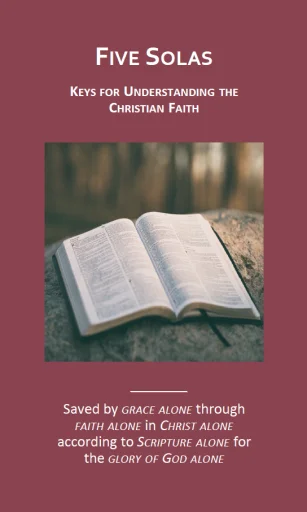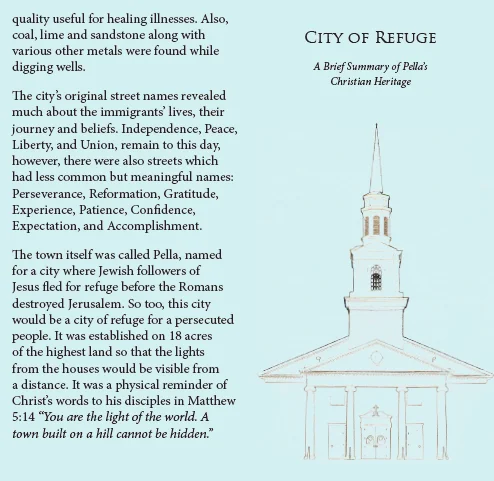God calls us to make disciples of all nations (Matthew 28:19), to preach the gospel to all people (Mark 16:15), and to honor Christ as holy, being always ready to give an answer to those who asks for a reason for the hope you have (1 Peter 3:15). Many throughout history, since the resurrection of Christ, have heard and followed that call to proclaim the good news of the gospel on the streets and in public places and events. Some do that through preaching the gospel to all who may hear, some through individual conversations, some through tracts. Consider these examples:
“So Philip ran to him and heard him reading Isaiah the prophet and asked, “Do you understand what you are reading?” And he said, “How can I, unless someone guides me?” And he invited Philip to come up and sit with him. Now the passage of the Scripture that he was reading was this: ‘Like a sheep he was led to the slaughter and like a lamb before its shearer is silent, so he opens not his mouth. In his humiliation justice was denied him. Who can describe his generation? For his life is taken away from the earth.’ And the eunuch said to Philip, ‘About whom, I ask you, does the prophet say this, about himself or about someone else?’ Then Philip opened his mouth, and beginning with this Scripture he told him the good news about Jesus.” -Acts 8:30-35
In these examples public discourse was accepted as a normal practice but it sometimes stirred up crowds and even riots (Acts 17:5). The Apostles were beaten and imprisoned for proclaiming good news, even under false accusations. In America today, this activity is protected through the First Amendment of our Constitution, the supreme law of our land.
“Congress shall make no law respecting an establishment of religion, or prohibiting the free exercise thereof; or abridging the freedom of speech, or of the press; or the right of the people peaceably to assemble, and to petition the Government for a redress of grievances.”
Also the Religious Freedom Restoration Act of 1993 safeguards our liberty to proclaim the gospel. In part it states: Government shall not substantially burden a person’s exercise of religion even if the burden results from a rule of general applicability, except as provided in subsection (b).
(b) EXCEPTION.—Government may substantially burden a person’s exercise of religion only if it demonstrates that application of the burden to the person— (1) is in furtherance of a compelling governmental interest; and (2) is the least restrictive means of furthering that compelling governmental interest.
Many states have passed their own Religious Freedom Restoration Acts as well.
Yet, public evangelists still get into situations and confrontations involving police or other government authorities. If you are an evangelist on the street, you will likely experience this yourself or at least know someone directly who has experienced this.
Be Professional and Respectful – Prepare and Prevent
As always, the best way to handle a difficult situation is to avoid it. We can conduct ourselves professionally and respectfully, seeking to be at peace with everyone (Romans 12:18). That doesn’t mean put aside the calling to proclaim the good news because it may offend someone. Paul didn’t, Jeremiah didn’t, and John the Baptist didn’t either. We are to approach this with humility and prayer. Lost sinners need to hear! (Romans 10:14,17)
Here are some things I do to prepare for a public outreach as best as I can. If I am doing this alone, it is important, but if others are joining it is all the more important to prepare and to share with your team.
Establish some basic ground rules
Consider the location and event, why are people coming here? Can we share the gospel in a way that does not disrupt the purpose of the event? When we talk with others, greet them with a smile. Demonstrate your love for the lost and respect for people as image-bearers of God. This does not preclude you from pleading for their lives or the lives of their unborn children, such as at an abortion clinic. Others can sense the concern, or lack of concern, in your voice and behavior. If people came to see a parade, or admire the beauty or harvest, etc. Don’t prevent them from doing that or you will be a stench to them. We should seek to enhance the event or location where that is possible.
Know the Law
Do your research on the local laws to know what is allowed and what is not. Most cities have their laws or municipal code available online as a matter of good practice, so the citizens can know the law, since ignorance of the law is no excuse. Here are things you should look for: sound or noise ordinances; use of amplification; sign ordinances as some need permits for posting or use of signs; permits or fees for setting up a booth or table; and public property lines when appropriate. Inform the local authorities, such as the police, about what you plan to do and seek their understanding of the guidelines. Adapt your plans if needed. Remember, the government may regulate how you communicate your message such as signs or sound, but not what the message itself. Keep your message focused on the gospel message and related biblical proclamation.
In my first year of hosing a public outreach, we had a booth to distribute tracts, later they restricted our booth and we complied. Even though we were not able to setup a booth, we asserted our right to be present in public areas and share the gospel through conversation and distribution of tracts.
Appeal to the Law
Later, during the public outreach, if others oppose you and call in the use of the police or other authorities, calmly appeal to the law. If you know the law, you can have a civil conversation and demonstrate your professionalism, often in contrast with those who are opposing you.
This is the approach that Paul used in Jerusalem as the Roman centurion prepared to flog him, “Is it lawful…” (Acts 22:22-29). He asked him in a matter-of-fact way, not arrogant, or mocking, or confrontational to the authorities. It was a question directed at the application and understanding of the law. This demonstrates humility.
If you do not know the local laws, it is hard to appeal to them when the authorities are engaged. It often deteriorates into arguments. If you do not know the laws, ask them to show you or explain. You are still at a disadvantage if they are not willing or are only giving you their interpretation of the law. If you are in a group, someone who is not speaking or not directly engaged in gospel conversation, should step aside to talk with the authorities so the others do not get interrupted.
Respect the Peace Officers
You don’t have to look very hard to find videos of Christians being confronted by police, asking them to stop what they are doing or to leave a certain area. Not all, but many depict the police as the “bad guy”, restricting our free speech or our individual rights. I imagine that many police have stories to tell about their interaction with Christian evangelists. Yes, sometimes the police are corrupt, but this is not always the case. Paul tells Timothy that the law is good (1 Timothy 1:8-11) and to view such public servants as ministers of God (Romans 13:1-7). He even wrote this while he and others were under the law and rule of the corrupt ruler, Nero.
Last year at the Living Waters Ambassadors’ Academy, my leader shared a tract with me called “Police Lives Matter” and encouraged me to go out of my way to give one to any officers passing by and thank them for their service.
Diligently Seek to Resolve the Conflict
Seek to address the conflict in a godly manner. The root of the conflict, is almost never with the police, but a conflict between you and the interested party who appealed to the police. For me, it was with the organizer of the event at which we sought to share the gospel. Arguing with the police is not the most fruitful because they are in the middle. The most fruitful way to resolve the conflict is to work directly with the other party who is part of the conflict. Seek to understand their concerns and find a way for both parties to ‘win’. Show your listing skills, show your concern as well for them and their desire. Find a way to share the gospel with them along the way. Show flexibility. Involve the authorities as a mediator if needed. Be persistent and live above reproach. Even if it is not resolved entirely, behave in a way that if others examined the situation they would say you made every effort to resolve the issue.
If you do find yourself in this situation, before an event, and may be concerned that your constitutional rights to free speech may be restricted, consult a lawyer. There are many good lawyers out there who can help. I received a number of recommendations from others and did some research on each of the organization. In the end I chose an organization who specialized in first amendment rights, as they had deep understanding of the issue and experience with the relevant laws.
In my situation, I had at least 5 conversations with the opposing party who did not want our public evangelism to happen. Along the way, I also had at least 3 conversations with the chief of police and other officers trying to understand. Go as far as you believe is reasonable, then go a little further to leave no room for doubt. I also went to the city council meeting to use my right to be heard by them, limited to 3 minutes before the meeting began. In the end, I delivered a letter from the attorney to the opposing party and a copy to the City Attorney and Chief of Police as a matter of courtesy to keep them informed. After about a week I received a letter form the City Attorney indicating that any issues would be dealt with without restricting or violating our first amendment rights.
Be an ambassador
When we share the gospel message in public, we represent all Christianity and Christians and the perception others have of us. We are ambassadors of Christ and His gospel. We want to reflect Christ and Christianity in a reasonable, professional, and respectful manner. All we do should point others to Christ and what He has done on our behalf in the gospel.
Related links:
 Iowa State Fair Gospel Outreach
Iowa State Fair Gospel Outreach
 Evangelism in the Church Order: Christian Reformed Church
Evangelism in the Church Order: Christian Reformed Church
 Five Solas Business Card
Five Solas Business Card
 City of Refuge Pamphlet
City of Refuge Pamphlet